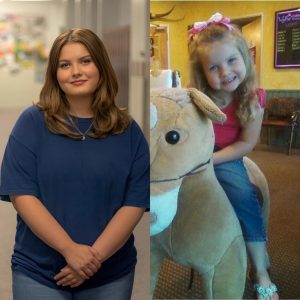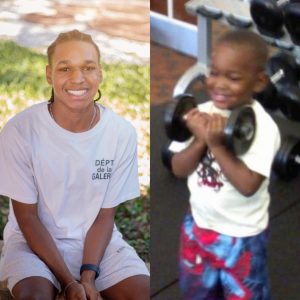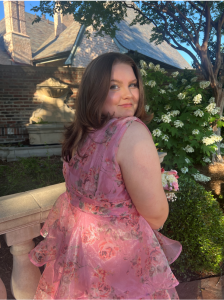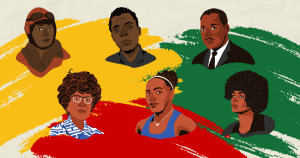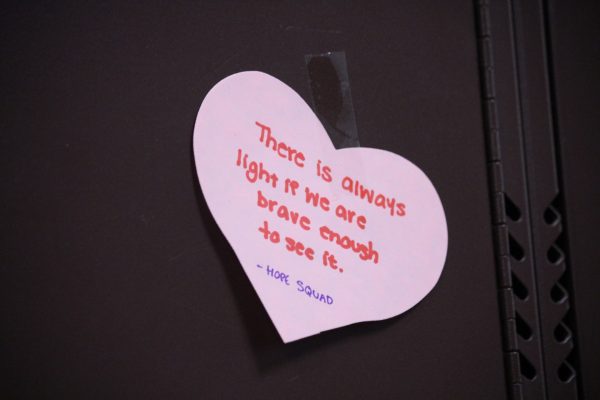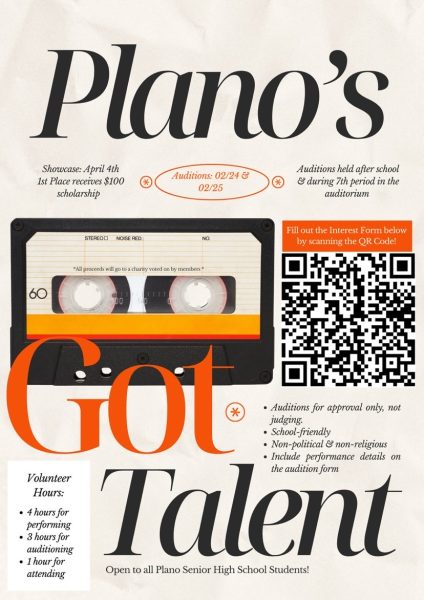Holding onto the motions
Wires and tubes leave her stranded in the same position on the hospital bed. Staying alone in the room leaves her emotionally and physically exhausted. Unable to rely on herself to do any necessary tasks like going to the restroom or bathing, she’s fully dependent on medical help.
Junior Victoria McKennon was diagnosed with Cystic Fibrosis when she was 7. Victoria’s first years started with minor symptoms, like failure to grow or gain weight, severe stomach aches, continuous bowel obstructions, difficulty breathing, sinus problems and a CF related cyst on her neck.
“I really don’t remember much other than that I was in the hospital for around two weeks,” Victoria said. “But that’s different when you’re 7 years old. It’s something you’re not really used to, but I guess it was just like a slap in the face. ‘Here’s your reality.’ That’s hard for you to take when you’re that young.”
CF is caused by a defect called the Cystic Fibrosis Transmembrane Conductance Regulator (CFTR) gene. For people who have CF, the gene doesn’t make the protein very well and creates a thick and sticky mucus along with very salty sweat. The CFTR gene allows CF to affect a person’s lungs, pancreas, liver and intestine. As a result of this disease, people suffer with shortness of breath, digestive issues, trouble with weight gain and trouble with growth.
With Cystic Fibrosis, Victoria goes through a daily routine of breathing treatments and taking a required dosage of pills. Depending on how much she eats, she can end up taking 43 or more pills per day. She is also required to do three breathing treatments each day, usually at home. If she ends up going to the Children’s Medical Center Hospital in Dallas for any particular reason, her breathing treatments go up to six times in a day. Without the pills, Victoria would have major stomach aches like she did before being diagnosed and would not be able to digest her food.
“It’s harder because I’m here at school,” Victoria said. “Sometimes I’ll do a breathing treatment during a class period.”
Last year, when Victoria was a sophomore, she was in the hospital for a little over a month during the holidays. Victoria ended up having to repeat that semester’s classes in the first semester of her junior year. Victoria still misses school and constantly has to catch up.
“It was really unfair that I had to go to summer school and get behind in my junior year because of something I couldn’t control,” Victoria said. “I feel unaccomplished and like that year was a waste.”
In 1980, the life expectancy of Cystic Fibrosis was estimated to be age 14. Since then, the life expectancy estimation has gone up by 21 years leaving the life expectancy at age 35. Victoria has a 50 percent chance of living to be 37.
“I don’t know if it just hasn’t hit me yet,” Victoria said. “It’s not as big of a deal as it should be. I think nobody really knew how to explain it to me. So when I was around 12, I Googled it. That’s how I found out. Most people are like, ‘Wow, your parents are terrible,’ but I don’t blame them because that’s hard to say.”
Cystic Fibrosis has affected Victoria’s family financially through expensive hospital bills and the common visits to the ER. Victoria’s mother stays at home to assist her daughter while her father works to pay the bills. Whenever an emergency occurs for Victoria, her brother senior Marc McKennon, who attends Plano East, stays home after getting off of school and takes care of the family’s pets while their parents are at the hospital with Victoria.
“My brother doesn’t treat me differently which is good,” Victoria said. “He treats me like a brother would. But we have to deal with other things that people usually don’t have to deal with, like ‘Marc, Victoria is going into the ER, will you take care of the dog and the cats for the night? We’ll let you know if she’ll be taken to the hospital.’ These are common things that we’ve learned to deal with.”
Marc said that he doesn’t get to see Victoria often and has gone days without seeing his parents.
“I do look on Victoria’s Facebook page every now and then and my mom keeps me updated with what’s going on,” Marc said. “My relationship with them does feel like it’s kind of on pause, but it’s nothing too bad.”
Marc said school on the weekdays and work on the weekends keep him from visiting Victoria frequently.
“I really do wish I could be more supportive,” Marc said. “I will never feel the pain that Victoria feels every day. She’s one of the toughest people I know.”
Though Victoria’s family may go through financial and emotional struggles because of Victoria’s medical condition, she said their moral support has never made her feel alienated.
“My mom is one of my strongest rocks,” Victoria said. “She will always be there for me even when no one else is. I know my dad wants to be with me while I’m in the hospital, but can’t because he has to work to pay the bills.”
This year, Victoria’s goals consist of having a good GPA, maintaining good friends and staying out of the hospital for more than two months straight. Victoria said focusing on these goals allows her to stay balanced between positivity and negativity.
“If you try to be positive, you fool yourself in a way,” Victoria said. “But I’m not going to be negative either because you’re also fooling yourself. So find the happy medium. Don’t fool yourself because you’ll always be disappointed. When you flip the neutral things in life to be positive, the positive seems less. If you just take everything as it is, you can surprise yourself and be happy over small things too. I know it sounds really cliché, but I just want to be happy right now.”
Your donation will support the student journalists of Plano Senior High School. Your contribution will allow us to purchase equipment and cover our annual website hosting costs.
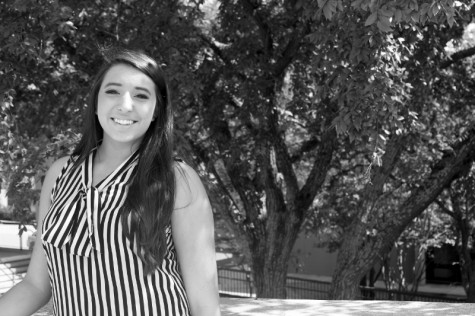
Senior Stephanee Smith is a second year member of the Wildcat Tales. She grew up with her mom and two sisters, who are each two years apart. She attended...

